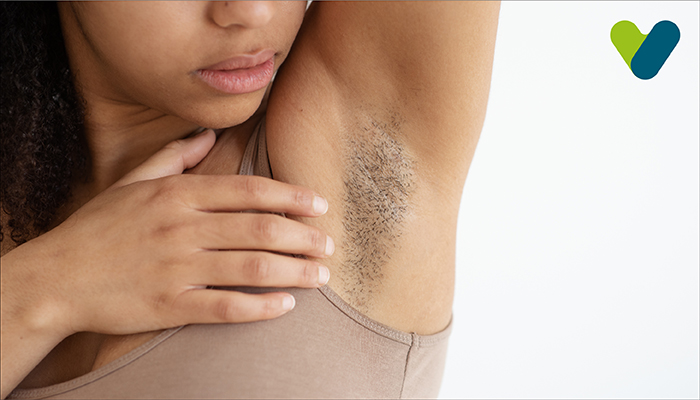Pubic lice or crabs are tiny insects that mainly live on your pubic hair (genital area). They usually spread through sexual contact. Though this crab louse infests your genital area, sometimes it is found in other body parts like armpit hair, facial hair, and eyelashes. Crabs disease or pubic lice infestation is common among people who are suffering from sexually transmitted diseases. With your naked eye, you can see these lice.
Pubic Lice/Crabs Symptoms
The prime symptom of pubic lice is itching that you will experience within 5 days of infestation.Some other symptoms are:
- Tiny red bumps or spots on the skin
- You may see blue spots on the thighs or lower abdomen
- Louse droppings (dark brown or black powder) on the skin of your genital area or in the underwear
Causes of Crab Disease
Pubic lice can crawl; they usually transfer from one person to another in the below-mentioned ways.- During sexual activity
- Through non-sexual activities like touching, hugging, or kissing
- If you share towels, bedding, and other personal things of an infected person
Diagnosis
By examining your pubic area, your doctor can diagnose the crab’s disease. You can also see an infestation by using a magnifying glass. A pubic louse has six legs and is grey-coloured. The eggs are whitish and commonly found in the root hair of the pubic area.Treatment of Pubic Lice
To get rid of crab louse, you need to decontaminate yourself, your clothes, and your bedding.Topical Medications: Some over-the-counter lotions and shampoos are very useful in extirpating pubic lice from your body. You can purchase products like permethrin lotions (RID, Nix, and A-200) to remove pubic lice. Always consult a doctor regarding which product could be the most suitable for you if you are pregnant, breastfeeding, or treating a child.
If your infestation is mild, you just wash the pubic area thoroughly before applying the lotion. Go through the instructions properly so that you can understand how much product you need and how long you need to leave the product on your skin. Sometimes, you may need prescribed medications if the topical solutions won’t give you any results.
Since lice eggs are stubborn, hence a few eggs might stick to your pubic hair. By using tweezers, you can remove these eggs. Home remedies like hot water bath or shaving may not be adequate for the removal of pubic lice. Lice can easily live in ordinary soap and water.
If many family members of your house are infected with pubic lice, treat everyone at the same time to prevent reinfection.
You may need to decontaminate your house to remove the infestation from the core.
- Vacuum the entire house
- By using bleaching solution, clean the toilets
- Wash all towels; bedding, clothing, and other personal items with hot water, and machine dry them
- If you are unable to wash or dry clean your items, lock them in airtight plastic for 72 hours
Malathion (Ovide): you need to apply this topical lotion to the affected areas. Then leave it for 8 to 12 hours.
Ivermectin (Stromectol): This medication should be taken orally (as a single dose of two pills). You also need to take another dose after 10 days.
Lindane: This is the sternest and the most toxic product among all prescribed medications for pubic lice treatment. After applying it, you need to leave it for only 4 minutes and then wash it off. Never use this product if you are pregnant or breastfeeding or don’t use it on infants.
If you are having pubic lice on eyelashes, then you can pluck them with tweezers or a nit comb. But consult a doctor if an infestation is there near your eyes. Your doctor might prescribe some special medications that are particularly designed for infestations near your eyes. Don’t apply regular lice shampoos around your eye areas.
You may feel itching for a week or two as your body may suffer from an allergic reaction to the bites. If you experience swelling, skin discolouration, or drainage from wounds, talk to the physician without any delay.
People who are suffering from pubic lice should do the following:
- Avoid sexual contact until you overcome the infestations
- Inform your partners or people who are your close contact
- Consider testing for other STIs.
Complications
Without any treatment, you may suffer from some serious complications. Pubic lice do not pass on diseases, but too much scratching on the affected area may lead to sores or a skin infection.- If there are lice in your eyelashes, you may suffer from conjunctivitis (an eye inflammation and infection).
- If you are not sure whether lice have gone or not, talk to a healthcare professional for examination.
Sometimes, eggs may remain in your pubic hair, so you must visit a doctor. Stronger medications may be needed to get rid of the infestations.
